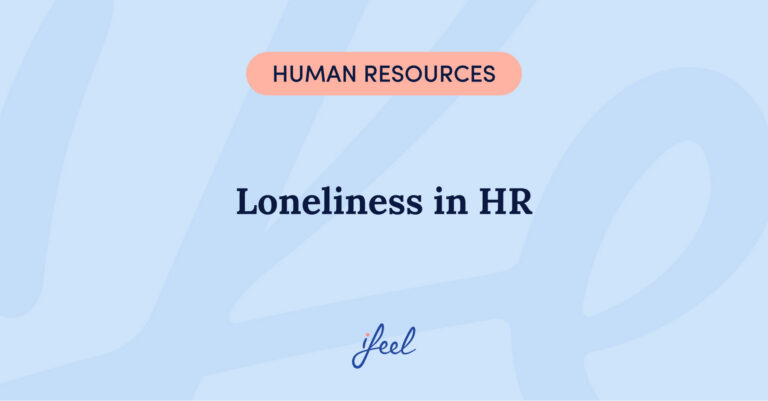Are you a workaholic on holiday?
Holidays are, in theory, a time to relax, disconnect from work and recharge your batteries. However, many people experience a varying degree of anxiety at the prospect of requesting, organising and experiencing a holiday that goes beyond a day or two off.
Imagine how hard it is for a workaholic on holiday and, in their own way, for those who, without having such a serious psychological health problem, also find it difficult to leave the office for a few days.
When we experience an enormous dislike of the prospect of holidays, the so-called ‘pre-holiday syndrome’, stress at Christmas, anxiety in the summer or an inability to stop working, even though we are away from the office, we may have a workaholism problem.
It is indeed paradoxical, but people are like that: we have contradictory needs, we need to rest, but sometimes we are reluctant to switch off the computer and activate the automatic answering of our corporate mail. And there can be many different reasons for this.

What does it mean to be a workaholic on holiday?
Workaholism is a condition characterised by an excessive compulsion to work. Workaholics on holiday feel an uncontrollable need to work constantly, even at the expense of their personal health and well-being. This behaviour can be driven by a variety of factors, including performance anxiety, work pressure and an over-identification with the professional role.
Being a workaholic on holiday manifests itself through an inability to mentally and physically disconnect from work, prioritisation of work over other areas of life, and a constant preoccupation with work tasks, even outside of work hours.
Factors contributing to this addiction include an organisational culture that values extreme productivity, a lack of time management skills, and personal or emotional problems that are compensated for through overwork.
In any case, let’s look at six of the reasons most commonly highlighted by holiday workaholics, i.e. people who find it psychologically taxing to go on holiday.
Common reasons reported by workaholics
| Reason | Description |
|---|---|
| Fear of Loose Ends | “I find it very difficult to go on holiday because I’m afraid of leaving something important unfinished and not realising it.” When we have several tasks, it’s relatively easy to organise them, but with many diverse responsibilities, something may slip through and cause an unpleasant surprise during our absence or upon our return. |
| I Don’t Want to Miss Anything | “I’m afraid that important things will happen in my absence, and I’ll miss them.” When we are deeply involved in our work, we don’t want to miss significant events that are out of our control and where we can’t be present. |
| I Don’t Know How to Play on Holidays | “I work so much that I feel uncomfortable when I have so much free time.” The problem is that we are not used to not working. Our work fills our lives so much that we lack the skills to manage outside of it. Therefore, the possibility of spending one or two weeks away can seem threatening rather than appealing. |
| My Holidays Are Not So Attractive | Social media and the media have raised the bar for perfect holidays to an unattainable level. Comparing our holidays to others’ makes them seem lacklustre, turning them into an unappealing plan not worth embarking on. |
| A Lot of Work Awaits Me Upon Return | “It stresses me to think about the number of things I will have to do when I get back.” Even if we leave everything ready before we go, the threat comes from thinking about what will accumulate in our absence. The idea of facing a large workload upon return can overshadow our preparations. |
| I Don’t Like My Life, I Prefer to Work | “I have so many problems in my personal life that, in reality, I’m better off working than dealing with my free time.” If we don’t enjoy our own company, have family problems, busy friends, and a limited budget, working can seem like a better option than taking holidays and facing our life outside the office. |
Impact of being a workaholic on holiday
For workaholics, holidays can be a source of stress rather than relaxation. The problem is that this phenomenon not only affects individuals, but also has significant repercussions for organisations.
Negative effects on employee health:
The inability to disconnect from work during holidays can trigger physical and mental health problems, including anxiety, insomnia and burnout. Similarly, lack of adequate rest prevents the recovery needed to maintain optimal performance.
Research shows that people who fail to disconnect from work during their time off experience increased burnout over the course of a year and exhibit lower resilience to stressful work conditions. Psychological disconnection from work is crucial for recovery and can increase long-term productivity
Organisational impacts:
From a business perspective, employees who are not adequately rested may experience decreased long-term productivity, increased rates of absenteeism and an increased likelihood of burnout. This can translate into additional costs for the company in terms of staff replacement and medical care.

Workaholic on holiday: How your company can support you
HR managers and executives have a crucial responsibility: to look after the well-being of their staff. For this reason, it is essential to implement strategies that help workaholics to make the most of their holidays effectively. Here are some practical tips to support workaholics and encourage a healthy work-life balance within organisations.
1. Set clear boundaries
Encouraging policies that prohibit access to email and work platforms during holidays is a key step. This helps to create an environment where rest is respected and valued, allowing employees to truly disconnect and recharge. The implementation of these policies should be clear and consistent to avoid ambiguity.
2. Promote advance planning
Encouraging employees to plan their tasks in advance to avoid the temptation to work during holidays is essential. Delegation of responsibilities and advance preparation can minimise anxiety related to pending work. In addition, it is useful to establish clear procedures for covering tasks during employees’ absence.
3. Encourage disengagement activities
Suggesting activities that promote relaxation and well-being, such as physical exercise, meditation and participation in hobbies, can help workaholics find new forms of enjoyment and rest. These activities not only improve personal well-being, but can also increase productivity and creativity once employees return to work.
4. Lead by example
Managers should model the desired behaviour by taking their own holidays and disconnecting from work. Such leadership, for example, sends a clear message that rest is an essential part of career success. When business leaders demonstrate that they value and respect time off, they create an organisational culture that supports work-life balance.
5. Implement well-being solutions
Implementing solutions that promote employee mental health and well-being is an effective strategy for addressing workaholism. These programmes can include stress management workshops, mindfulness sessions and access to psychological support resources.
By identifying and addressing the symptoms of workaholism early, companies can effectively intervene to help their employees find a healthier balance. By offering these tools, companies can help employees better manage their time and reduce work dependency as a way of coping with anxiety.
Large companies have already opted to implement well-being solutions. David Peñaranda, Health & Safety Manager Spain and Portugal at Werfen, expressed his opinion:
“At Werfen, we care about people. Our employees are our greatest asset. That is why we are committed to their well-being in all its dimensions, offering a wide range of benefits to encourage healthy habits, promote work-life balance, and create an environment where everyone can feel supported and valued”.

Trust the leaders
At ifeel, we know that being a workaholic on holiday is a significant challenge for both individuals and organisations. Understanding this phenomenon and implementing effective strategies to manage it can significantly improve employees’ quality of life and, at the same time, increase productivity and overall well-being within the company.
To assist in this process, our team of psychologists specialising in mental well-being has developed a mental well-being program for companies aimed at helping companies enhance employee engagement and boost productivity.
This collaboration allows HR managers to receive personalised, data-based advice on the most effective measures for detecting employee mental health issues and assessing the workplace climate. It’s the best way to understand their needs.
Moreover, ifeel’s corporate mental well-being solution offers employees a structured mental health care service tailored to their needs at any given time.
We hope you found this article on being a workaholic on holiday interesting. If you want more information about our mental well-being solution for companies, simply request it, and we will contact your team soon.










